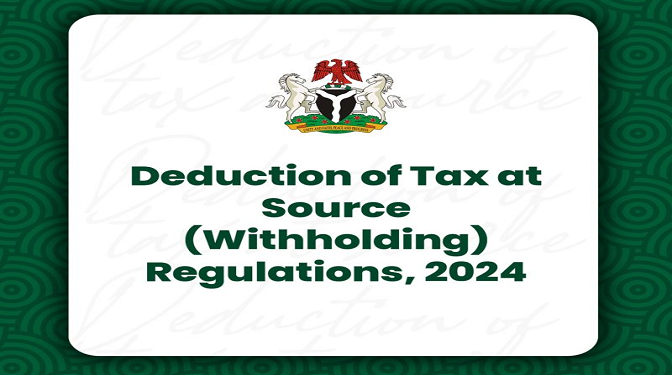The Federal Government has unveiled new tax regulations designed to ease the tax burden on manufacturers and small businesses, streamlining the process for tax deductions at source and promoting ease of compliance.
The new rules, outlined in the “Deduction of Tax at Source (Withholding) Regulations, 2024,” were signed into law by Wale Edun, the Minister of Finance and Coordinating Minister of the Economy, on Wednesday. These regulations aim to reduce tax complexities and ensure businesses benefit from clear, globally-aligned tax practices.
“The regulations seek to streamline the deduction of taxes at source from payments to taxable persons, reduce complexities, and promote ease of compliance for businesses,” Edun explained.
The new guidelines will govern tax deductions under key laws including the Capital Gains Tax Act, Companies Income Tax Act, Petroleum Profits Tax Act, and Personal Income Tax Act. By simplifying these processes, the government aims to curb tax evasion and eliminate loopholes, while creating a more business-friendly tax environment.
A significant part of the regulations is the provision for tax exemptions targeted at small businesses, particularly in low-margin sectors, as well as manufacturers who may be overwhelmed by existing tax burdens. Small companies with monthly turnovers of ₦2 million or less and valid Tax Identification Numbers (TIN) will be exempt from these deductions, which is expected to encourage growth and reduce financial strain on smaller enterprises.
To further encourage compliance, the regulations include penalties for businesses that fail to remit deducted taxes or provide a TIN. In cases where no TIN is provided, businesses will face double the standard deduction rate for eligible transactions.
“In the case of eligible transactions where the recipient has no Tax Identification Number, the amount to be deducted at source shall be twice the rate specified,” the regulations state.
Importantly, tax deductions made under these regulations will not be treated as an additional cost to businesses but as an advance payment toward their final tax liability. This structure aims to simplify the tax process, ensuring businesses don’t face extra financial strain due to tax deductions.
The regulations also detail specific exemptions for sectors critical to the economy, including registered securities lending transactions, telecommunications, energy, and manufacturing, ensuring that essential business activities are not stifled by excessive taxation.
The new tax rules will officially take effect on January 1, 2025, but provisions have been made for early application starting from July 1, 2024. The Federal Inland Revenue Service (FIRS) will issue additional guidelines to ensure a smooth transition and implementation, with approval from the Ministry of Finance.
This latest development is part of the government’s ongoing efforts to modernize Nigeria’s tax system, foster economic growth, and support businesses of all sizes, particularly manufacturers and MSMEs, as they remain central to the country’s economic future.










